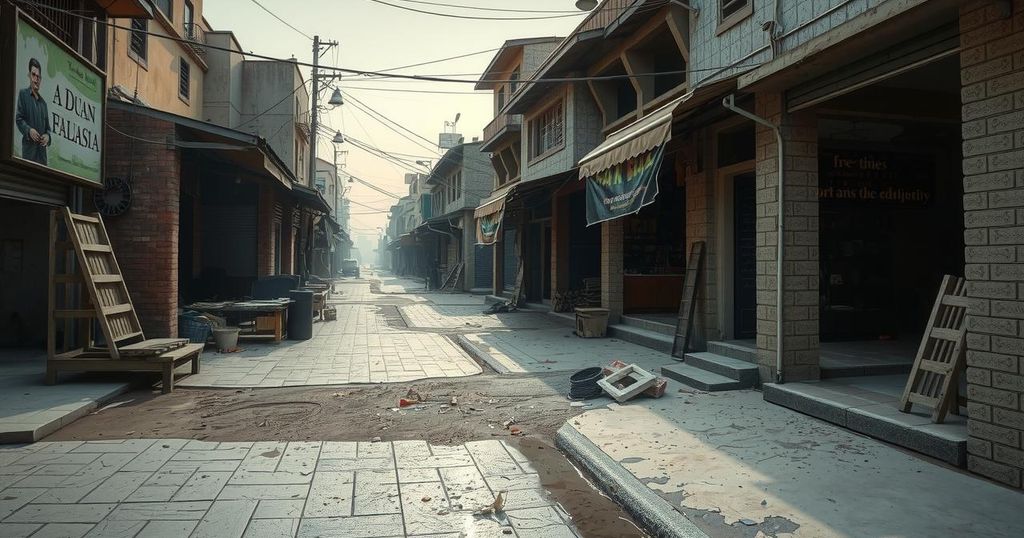Syria’s economy continues to suffer under sanctions despite the end of its civil war. Citizens face severe difficulties in accessing cash, leading to frustration and anger. The new government struggles with sectarian tensions while trying to stabilize the economy, amidst criticisms of global political influences that threaten national recovery.
In central Damascus, long queues at cashpoint machines reflect the dire state of Syria’s economy, still shackled by sanctions. Frustrations have spilled over as individuals struggle to withdraw a mere $30, leading to altercations among those desperate for cash to support their families. As the holy month of Ramadan approaches, what started as a sense of relief following the end of the civil war is giving way to anger over the government’s failure to revitalize the ailing economy.
Despite the ousting of Bashar al-Assad, sectarian tensions persist in Syria, complicating governance for the new leadership. The ruling authorities appear caught between the need to placate minority groups and the demands of their jihadist factions. The delicate balancing act continues to hinder effective economic recovery and development amid a backdrop of heightened societal discontent.
Widespread despair is compounded by the ongoing impacts of global political dynamics, as illustrated by the perception of Donald Trump’s transactional foreign policies. Critics assert that such an approach would pose challenges that extend beyond current conflicts, impacting global diplomacy and possibly jeopardizing U.S. military supremacy. As nations like Ukraine, Gaza, and China navigate these complexities, the overarching concern remains the dire state of domestic economies influenced by external factors, including pervasive online scams that rival traditional criminal enterprises.
In conclusion, Syria’s economy remains in a precarious position, exacerbated by enduring sanctions and internal corruption. The recent political changes have not alleviated economic hardship but instead intensified societal tensions. The interplay of various political agendas and external pressures, including the shifting landscape of American diplomacy, further complicates efforts towards recovery. Without significant reform and lifting of sanctions, the prospects for revitalization remain dim and uncertain.
Original Source: www.economist.com






